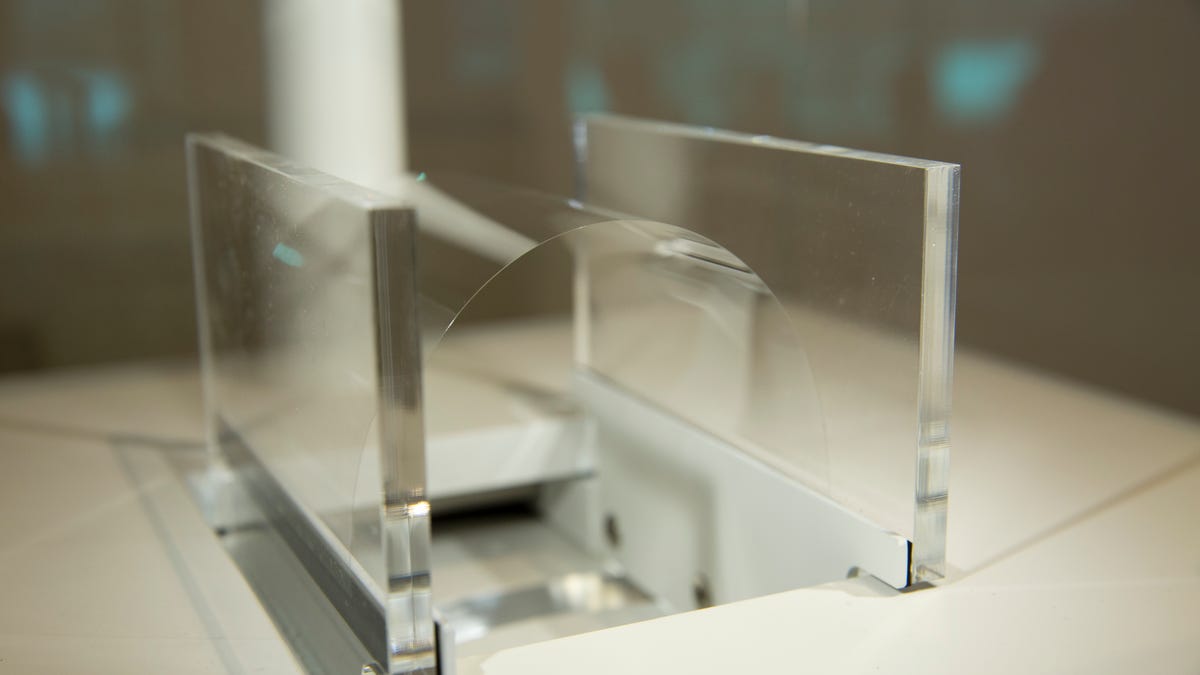This glass can bend tens of thousands of times without breaking
Schott's Ultra-Thin Glass is thinner than a human hair, and you can watch us bend it in this CNET video.

Forget curved screens -- I want a computer that rolls. I want a laptop-size screen that can wrap around my arm. And last week, I got to play with one of the key ingredients that could make those devices possible: glass that can bend like Beckham's famous football.
I don't mean this glass bends a teensy little bit. I mean it can double over like it got punched in the gut. I mean I shook a piece of glass like a Polaroid picture. And better still, I've got the video to prove it:
What you're looking at is a piece of glass just 70 microns thin, one that can bend tens of thousands of times without breaking. It ships to factories in rolls, each one consisting of a single piece of glass that's a quarter of a mile long. To get such thin, strong glass -- as thin as 25 microns, thinner than a human hair -- the company sucks molten glass directly out of a giant vat and into a set of rollers while it's still cooling.
You've probably never heard of Schott, the company behind this new, flexible glass. (There's probably some Schott glass inside the camera in your phone.) But then again, you'd probably never heard of their chief rival Corning either -- until Corning's famously tough Gorilla Glass made phone screens more durable.
Speaking of Corning, you should probably know that flexible glass isn't exactly a new idea. Remember Corning's flexible Willow Glass from 2013? Three years later, we still don't have bendy screens in our products.
Schott argues that its glass is thinner than Corning's product and can be chemically treated to be stronger, but even so it'll take a whole lot more than flexible glass to make rollable computers real. We'll also need bendable batteries, flexible circuits, and rollable screens -- all of which are still in the R&D stage at major electronics companies. (The roll-up LG TV that blew minds at CES is still a prototype, unfortunately.)
In fact, the first products that use Schott's bendy glass won't actually bend. For now, we're far enough away from bendy computers that Schott isn't actively pursuing them at all. The low hanging fruit, says Schott, are fingerprint sensor covers and the layers separating components inside tightly stacked computer processors.
In Schott's demo suite at a San Francisco hotel, I tried a fingerprint sensor covered with Schott's new glass -- the one in LeTV's 1S phone. It looked shiny. It felt smooth. It didn't bend at all. I knew it wouldn't, but it was a sobering reminder that the practical applications for fancy new technologies like these aren't always as cool as you'd expect.
Still, I'm not ready to give up on my dream of a rollable phone. I'm willing to wait.

